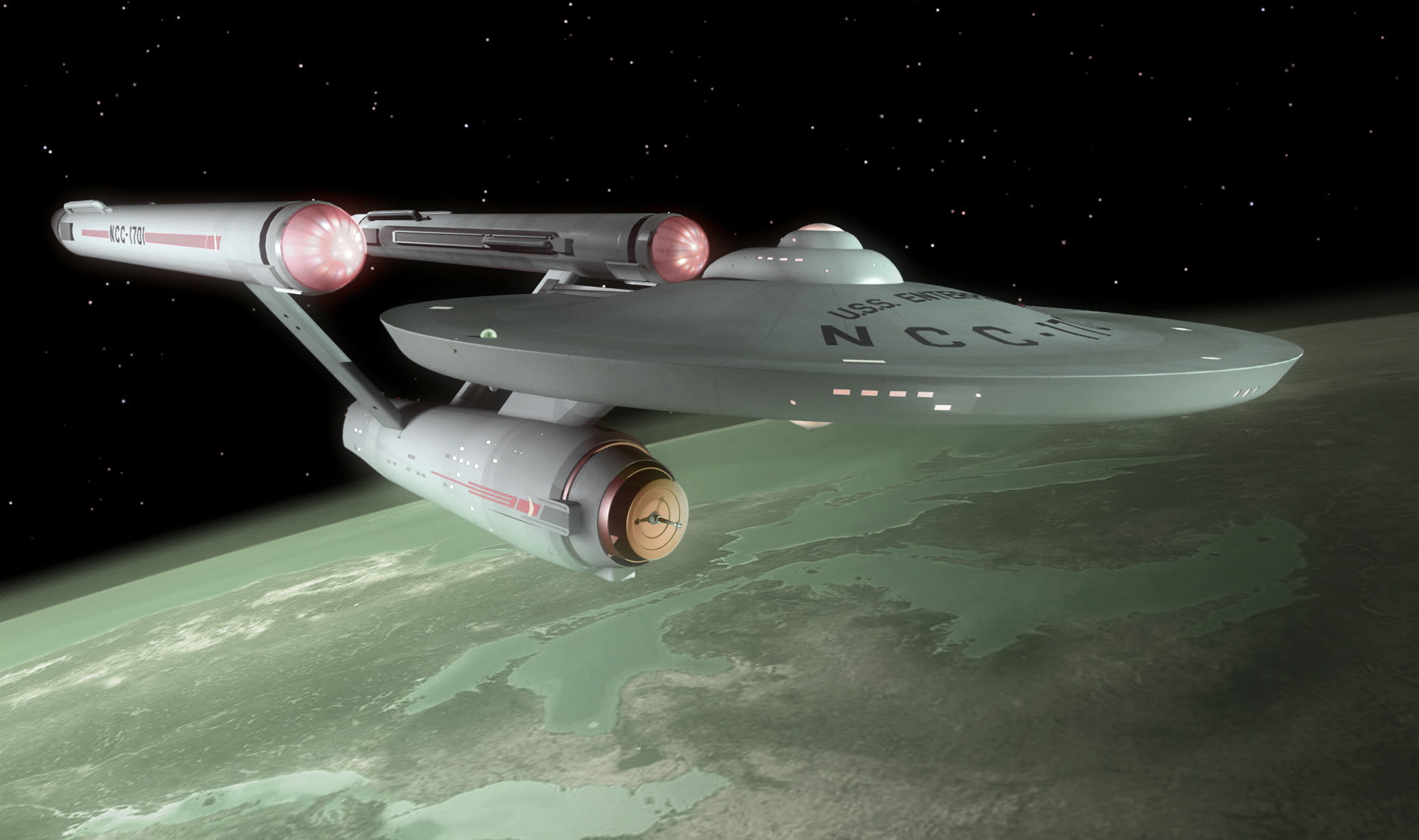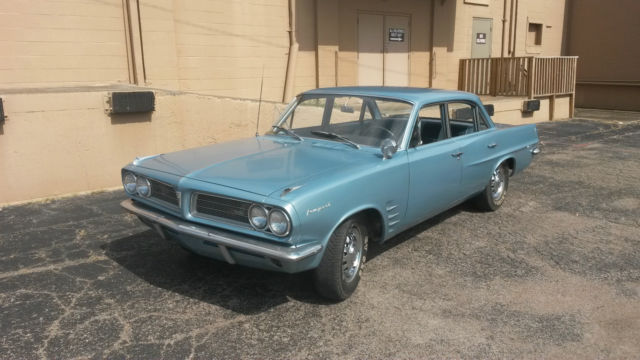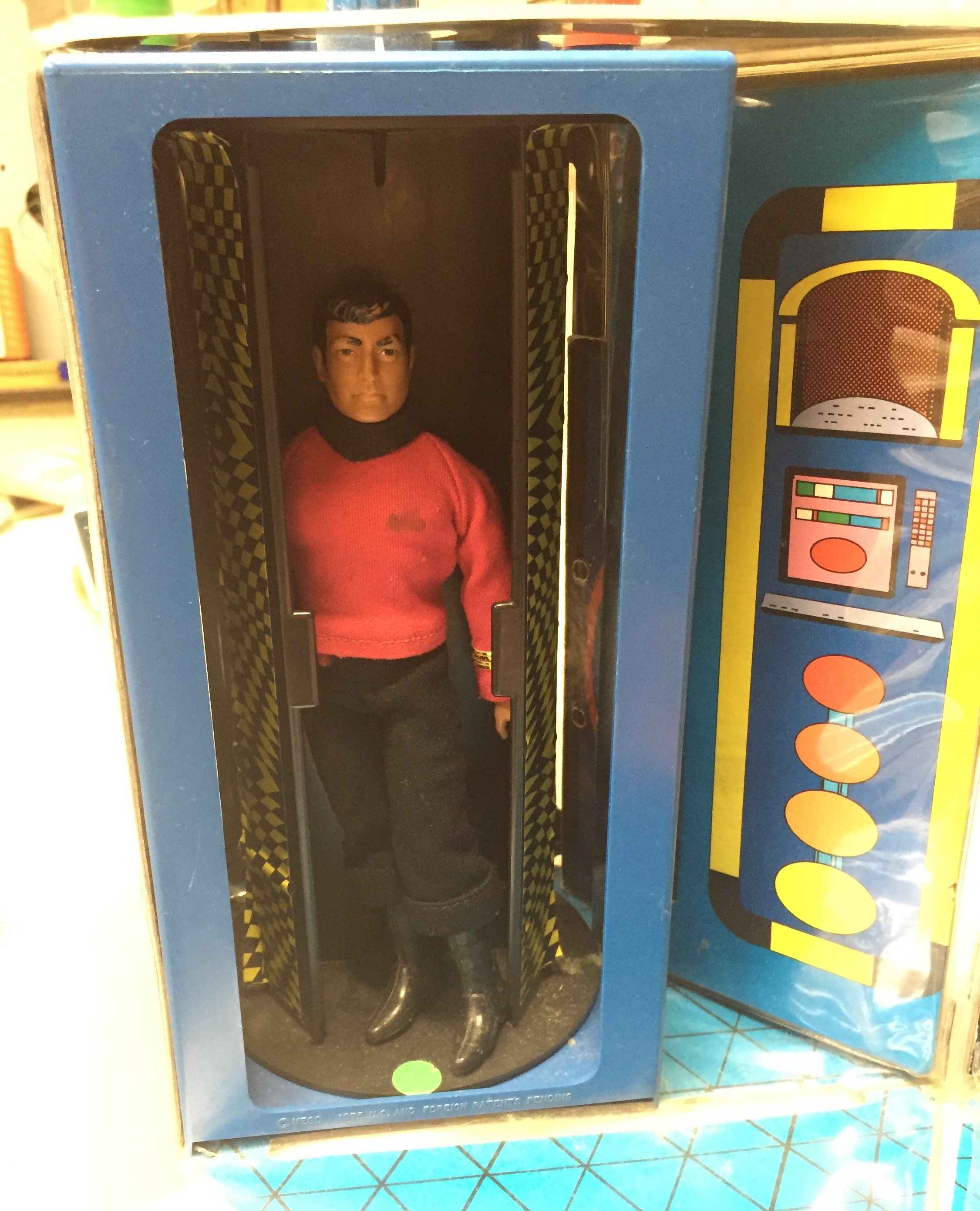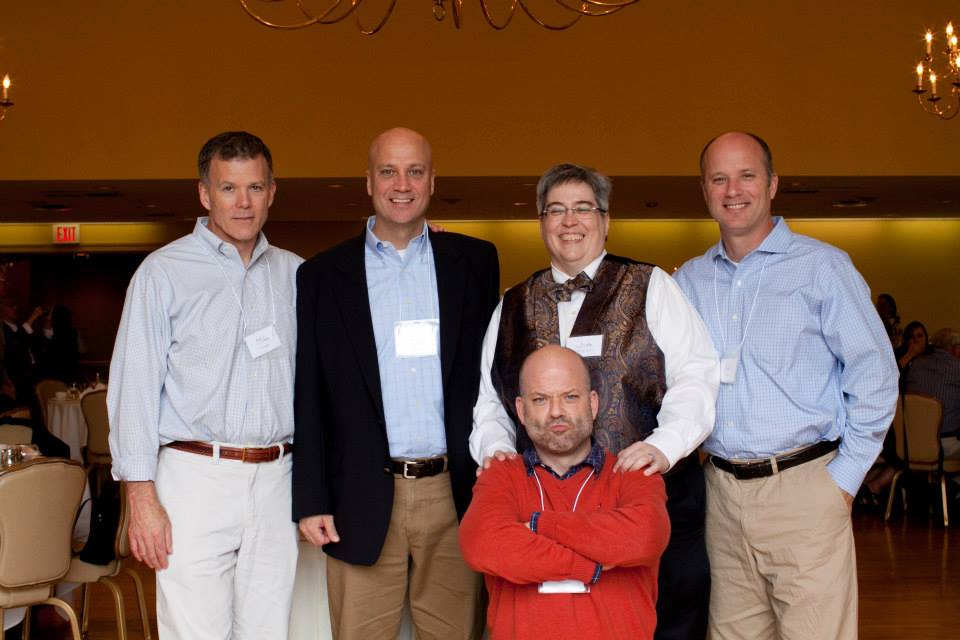My cousin Tom Hogan — Mr. Hogan to his many, many high school social studies students in Delaware — died on Monday July 17, 2017. I wrote a thing about him, because that’s what I do when experiencing heavy emotional weather. Today would have been his 47th birthday.
My cousins — Tom’s brothers and sisters-in-law — enjoyed this when I forwarded it to them, so I hope that other people who knew him and even people who didn’t will likewise enjoy it.
Prologue
In which I use a possibly familiar quote, which I swear will be relevant in a few moments:
“Space, the final frontier. These are the voyages of the starship Enterprise. Its mission: to explore strange new worlds, to seek out new life and new civilizations, to boldly go where no one has gone before.”
Introduction
I’m Tom’s only first cousin on the Hogan side of the family. I write for a living, including novels, the first of which I dedicated to Tom, describing him as one of my superheroes. And given that, I hope you will forgive the conceit by which I structured this.
Chapter One
There is a meme that circulates periodically on Facebook that says, “Our cousins are our first friends.” I love all my cousins, I really do, but there are sometimes things that preclude friendship, even in little kids — age differences, gender, that sort of thing. In my experience, the older cousins often affectionately tolerate the younger ones, and I love Mike, Bob, and Dan for tolerating me like complete champs.
Tom was two years younger than me, but I had no siblings and I apparently never learned to respect an age hierarchy. He was my first playmate and, yes, my first friend.
In the way of small children, we shared our wisdom with each other, totally uncensored. I told him about stars and volcanoes and hurricanes, talked about my own passion for writing, and explained what I knew about the mysterious contents of our grandmother’s basement. He told me what it was like to have brothers, that I really should go see that new movie, Star Wars, how to play Monopoly — I still don’t know how to play it “properly” — and that boys pee standing up.
Our grandmother took us to movies, and to Janssen’s in Greenville, and made us warm egg salad sandwiches for lunch. We sat together in the back of her powder-blue 1963 Pontiac Tempest in those days before seat belt laws and didn’t poke each other. We played together in the giant metal rocketship in the park across the street from our grandmother’s house, where he convinced me to try sliding down the pole despite my fear of heights — and at his parents’ house, with his myriad toys and board games. We sat in the back of my parents’ station wagon and Tom grinned and mugged and somehow convinced a motorcyclist riding behind us to give us thumbs-ups like the Fonz.
He was the best kind of brother, really — the one I could have great, memorable times with, and then give back to his brothers and parents for all the rest.
I didn’t have a lot of friends as a kid: I was a tomboy, I was a nerd, I was too smart for my own good. Unlike the kids at school, Tom took me at face value with zero judgment, as a child and, later, as an adult. I was always who I was, his cousin and his friend.
Chapter Two
Tom was my benchmark for generosity. I never knew another kid who would give things to other people so freely. He always got tickets to St. Catherine’s carnival for his birthday — which was, as you probably know, July 30. He always gave me some to go on rides; not even to go on rides with him, though that was great when it happened. No, just for me to go have fun.
Star Trek was our great mutual love and bonding experience. We both had the Mego Star Trek figures, and the plastic fold-out Enterprise with its spinning transporter. Tom played Captain Kirk and Mr. Scott — he had the worst Scottish accent I’ve ever heard — and I played Spock to his Kirk, cool logic to his seat-of-the-pants style.
During one particularly destructive period of his childhood, when many of his toys were subject to cars and hammers and other methods of plastic destruction, I begged him to give me Mr. Scott. I was afraid for Scotty, you see — and, also, didn’t have a Mr. Scott of my own. Little kid, remember? And he just handed him to me with a grin.
When I came down to see Tom for the last time, I found Scotty in my parents’ basement. I took a picture of him in the transporter of my plastic fold-out Enterprise and sent it to Tom.
I forgot to tell him that from time to time, my wife calls me Captain Kirk now — that he taught me about doing things by the seat of my pants and succeeding despite the odds.
He continued immensely generous, giving out of some seemingly endless font of extravagant humor, love, and joie de vivre. He never stopped sharing his uncensored wisdom, though he grew a knack for turns of phrase and timing. I remember when the five of us were walking our grandmother’s coffin out of the church back in 2003. He and I were at the back and he caught my eye, patted the powder-blue coffin, and said so only I — and maybe Dan — could hear, “The Tempest!” Nanny going out the way we most fondly remembered her.
Chapter Three
Tom was the first person who really got me as a geek. He didn’t make me feel strange about my love of science fiction — a love that has since turned into an identity and even a vocation for me. Later, he was one of the vanguard of the family who accepted other things about me. On that first awkward family holiday when neither my wife nor I were entirely certain about our reception, he met us at the door, hugged and kissed me as usual, and just moved on to do the same with her. His deceptively simple and utterly natural act of kindness was the perfect social facilitation.
I shouldn’t have been surprised when Tom became a teacher, and it pleased me that we continued to be the two weirdos in the family with our career choices. But I certainly wasn’t surprised that he was so good at it. Every day of the last several years, it seems, I’ve seen someone on Facebook — a colleague, a student, an old friend — tell him how much of a difference he made in their lives. When I last met him for lunch, we ran into two or three of his former students who as nearly as possible gushed over him.
He touched the lives of literally thousands of people in positive, wonderful, life-changing ways. He was larger-than-life and possessed of amazing energy — like a superhero — and he worked hard to approach everything as an adventure, endlessly interested in everything and everyone around him. When I last visited him, he was, even as he recalled the things we did together in the past, thinking of what was ahead. I asked him what he thought was going to happen — thinking about time tables and such — and he said, “I don’t know, I’ve never done this before,” with a big grin.
Finale
If you want to do something today, or tomorrow, or next year, or ten years from now, to remember Tom, let me make a few suggestions:
One: Support medical marijuana. Those of you who know what I’m talking about will know what I’m talking about. For the rest of you, just trust me on this. It’s a lifesaver.
Two: Support public schools and education. If you know anything about Tom, it’s that teaching was one of his passions, and we are all more fortunate for his involvement at AI and in the lives of so many students over the years.
Three: Be generous. Lift each other up. Love recklessly. When someone tells you what they want, what they really, really want — insert Tom singing a song here — think about the words that come to your lips: are you about to squash everything they just said with what you feel is the cold, logical voice of reason? Instead, be Tom: ask them to tell you more, ask them why, and maybe dream a little with them.
Epilogue
From my memory of the final movie featuring the original Star Trek cast:
The captain swung into his command chair and said, “I think it’s about time we got underway ourselves.”
The communications officer turned from her station and said, “Captain, I have orders from Starfleet Command. We’re to put back to Spacedock immediately… to be decommissioned.”
The Vulcan science officer looked up from his screen. “If I were human, I believe my response would be ‘go to Hell.'” Then he looked at his captain and added, “If I were human.”
After a moment, the navigator said, tentatively, “Course heading, Captain?”
The captain leaned forward in his seat, gazing keenly at the viewscreen, the stars tantalizingly close and unimaginably distant, everything an undiscovered country. He smiled and said, “Second star to the right and straight on till morning.”





